Finding Meaning in the Face of Suffering

“Everything can be taken from a man but one thing: the last of the human freedoms — to choose one’s attitude in any given set of circumstances, to choose one’s own way.”
-
Viktor E. Frankl, Man’s Search for Meaning
- Viktor Emil Frankl (1905-1997) was an Austrian psychiatrist, neurologist, philosopher, author, and Holocaust survivor who founded the school of logotherapy, a meaning-centered approach to psychotherapy. His harrowing experiences in Nazi concentration camps shaped his perspective on human suffering and resilience, leading him to develop a psychological framework that emphasizes the importance of finding meaning even in the most dire circumstances. Frankl’s most famous work, Man’s Search for Meaning, chronicles his experiences in the camps and lays out the fundamental tenets of logotherapy.
Main Ideas and Key Points:
- Frankl’s logotherapy emphasizes the importance of finding meaning and purpose in life, even in the face of extreme adversity and suffering.
- Frankl proposed three main ways to discover meaning: through work or deeds, through love or relationships, and by the attitude we take toward unavoidable suffering.
- Logotherapy views humans as comprised of body, mind, and spirit. The spiritual dimension is key to our humanity and capacity for self-transcendence.
- Frankl identified “existential vacuum” as a widespread malaise in modern society, characterized by feelings of emptiness, boredom, and meaninglessness.
- Frankl argued that humans are ultimately self-determining; between stimulus and response lies the freedom and responsibility to choose our attitude.
- Tragic optimism is the ability to remain hopeful in the face of the tragic triad of pain, guilt, and death. It allows us to turn suffering into achievement.
- Frankl debated other existential thinkers like Rollo May on the primacy of meaning vs. power as human motivators.
- Logotherapy spawned several techniques such as paradoxical intention and Socratic dialogue which are used to help patients overcome anxiety and find personal meaning.
- Frankl’s ideas have been applied to diverse realms beyond individual therapy, including work settings, educational institutions, and societal challenges.
- While influential, logotherapy has drawn critique for its potential oversimplification of human experience and its limited empirical validation compared to other therapies.
- Biographical Background 2.1. Early Life and Education Viktor Emil Frankl was born in 1905 in Vienna, Austria to a Jewish family. From a young age, he was drawn to psychology and philosophy, corresponding with Sigmund Freud while still in high school. He studied medicine at the University of Vienna, specializing in neurology and psychiatry. During his studies, Frankl became interested in existential philosophy and was influenced by thinkers like Soren Kierkegaard and Martin Buber.
Who was Viktor Frankl?
In the 1930s, Frankl began refining his own theoretical approach to psychotherapy, which he termed logotherapy (from the Greek “logos” meaning word, reason, or meaning). He established a private practice and worked at Vienna’s Rothschild Hospital, where he headed the neurological department. During this time, he also began formulating his ideas about meaning and its centrality to mental health.
2.2. The Holocaust Experience
Frankl’s life took a dark turn with the Nazi annexation of Austria in 1938. Being Jewish, he was soon prohibited from treating “Aryan” patients. In 1942, Frankl, his wife, and his parents were deported to the Theresienstadt ghetto. Over the next three years, Frankl was transported between four Nazi concentration camps, including Auschwitz, where his parents and pregnant wife perished.
Despite the unimaginable horrors and deprivations he faced, Frankl managed to survive. He later reflected that his background in psychiatry and his nascent theories about meaning allowed him to maintain a degree of inner freedom and fortitude. He observed that those prisoners who lost faith in the future and their own inner purpose were the first to die. Frankl came to view the concentration camps as a “living laboratory” that bore out his ideas about the connection between meaning and survival.
2.3. Post-War Career and Influence
After the war ended, Frankl returned to Vienna, where he became head of the neurology department at the Vienna Polyclinic Hospital. In 1946, he published his most famous work, Ärztliche Seelsorge (later republished in English as Man’s Search for Meaning). Part memoir, part exposition of logotherapy, the book became an international bestseller and made Frankl a prominent public figure.
Throughout the second half of the 20th century, Frankl lectured widely, authored over 40 books, and received numerous honors, including the Oskar Pfister Award from the American Psychiatric Association. He held professorships at the University of Vienna, Harvard, and other universities. The Viktor Frankl Institute in Vienna was founded in 1992 to advance his work.
Though Frankl himself resisted being labeled an “existential” therapist, his ideas are often grouped with other existential psychiatrists like Rollo May, Irvin Yalom, and Ludwig Binswanger as part of the “Third Viennese School of Psychotherapy” (after Freud’s psychoanalysis and Adler’s individual psychology). Logotherapy is considered one of the main pillars of humanistic-existential therapy and has influenced a wide range of psychological and philosophical thought.
-
Theoretical Foundations of Logotherapy
3.1. The Will to Meaning
At the heart of Frankl’s theory is the belief that the primary motivational force in humans is the search for meaning. In contrast to Freud’s “will to pleasure” and Adler’s “will to power,” Frankl posited a “will to meaning” as the core driver of human behavior and flourishing. He argued that humans are not simply conditioned or driven by instincts, but have an innate pull to discover meaning and actualize values.
For Frankl, meaning is not an abstract or universal concept, but is highly personal and specific to each individual’s life circumstances. He suggested three main avenues for finding meaning: 1) Through creative work or accomplishments. 2) Through experiencing something or encountering someone, particularly through love. 3) Through the attitude we take toward unavoidable suffering.
When people feel their life is meaningless, they experience “existential frustration.” Prolonged exposure to a lack of meaning can lead to what Frankl termed an “existential vacuum,” a feeling of emptiness, boredom, and aimlessness. Frankl observed this as a widespread phenomenon in modern society, where traditional sources of meaning like religion and shared community values have declined.
Discovering personal meaning, according to Frankl, involves a process of self-transcendence. We move beyond self-absorption to experience purpose by directing our energies outward–to a cause to serve, a person to love, a mission to accomplish. Self-actualization, in Frankl’s view, occurs not by directly focusing on it, but as a by-product of forgetting ourselves and dedicating ourselves to something greater.
3.2. The Existential Triad
In logotherapy, human existence is analyzed along three core dimensions–the somatic (bodily), the mental (psychological), and the spiritual (noological). Frankl emphasized the spiritual dimension as the uniquely human realm, the “medicine chest of the soul.” It represents our capacity for self-transcendence, self-distancing, choice, responsibility, and the search for ultimate meaning.
Frankl argued that by ignoring the spiritual dimension, mainstream psychology presented a truncated and reductionist picture of the human person. He called his approach “height psychology” in contrast to Freud’s “depth psychology,” suggesting we should look to our highest aspirations rather than just our basest drives.
3.3. Freedom of Will
Another key aspect of Frankl’s existential approach is the emphasis on human freedom and responsibility. Between stimulus and response, Frankl asserted, humans have the ability to choose their attitude and reaction. Even in the most dire and restrictive circumstances, humans retain this freedom–not necessarily to alter the situation but to decide their own conduct within it.
With this freedom comes responsibility, the obligation to answer for our choices and actions. For Frankl, we are ultimately self-determining, not simply shaped by conditions but capable of taking a stand toward them. Embracing our freedom and responsibility in the face of difficulty is part of the path to meaningful living.
-
Logotherapeutic Techniques
4.1. Paradoxical Intention
One of the main techniques employed in logotherapy is paradoxical intention. It is used particularly for obsessive, compulsive, and phobic conditions. The basic premise is to encourage the patient to intend or wish for, even if just for a moment, the very thing they fear.
For example, a person with a fear of sweating would be told to try to sweat on purpose. An individual with obsessive thoughts is urged to try to have those thoughts. The paradoxical effect is that the anxiety is often relieved and symptoms diminished, as the person gains a sense of detachment and control over their neurotic patterns.
The aim of paradoxical intention is not to make light of suffering, but to break the vicious cycle of anticipatory anxiety and hyper-reflection that often exacerbates neuroses. By wishing for the feared outcome, we stop fighting it and gain a new perspective on our situation.
4.2. Dereflection
Another logotherapeutic technique is dereflection, the reorienting of attention away from a problem or symptom and toward positive goals and meanings. It is used particularly in cases of sexual disorders and sleeplessness, where excessive focus and “hyper-intention” toward a desired aim can inhibit its natural achievement.
By directing focus away from the problem and onto other pursuits and values, the person is better able to relax and allow blocked potentials to emerge organically. Shifting attention to the concrete ways we can be of service or live out our purpose also combats the tendency toward self-absorption that often accompanies neuroses.
4.3. Socratic Dialogue
Logotherapy also employs a variation of the Socratic method to help patients uncover their own unique sources of meaning. Through empathetic questioning and probing, the therapist guides the individual to discover what is truly valuable and purposeful in their life.
The therapist acts less as an advice-giver or expert and more as a facilitator of the patient’s own insight and choice. The aim is to widen the patient’s perspective, challenging them to see beyond their current limitations and to take responsibility for actualizing meaningful possibilities in their life.
4.4. Attitude Modulation
A core principle in logotherapy is that even when we cannot change a situation, we are free to change our attitude toward it. Frankl worked with patients to help them reframe their unavoidable suffering in a more meaningful light.
For example, he might guide a grieving patient to appreciate how their suffering is linked to the depth of their love for the deceased. Or he might encourage a terminally ill individual to find meaning through the courage and dignity with which they face their final chapter.
The goal is not to glorify suffering, but to emphasize our power to turn tragedy into triumph on a personal level. By consciously choosing our attitude in difficult times, we affirm our human freedom and prevent our spirit from being broken by circumstance.
-
Debate and Dialogue with Other Existential Thinkers
5.1. Rollo May and the “Existential Vacuum”
While Frankl shared much in common with other existential psychologists, he also engaged in meaningful debates that highlighted key differences in their perspectives. One such dialogue was with American psychologist Rollo May on the issue of meaning and the “existential vacuum.”
May argued that the widespread sense of meaninglessness observed in the modern world was less an issue of lack of meaning and more a result of feelings of powerlessness and social conformity. He suggested that what people needed most was to assert their individual will and autonomy in the face of societal pressures.
Frankl, in contrast, maintained that the “existential vacuum” stemmed primarily from an inability to find personal meaning and purpose. He argued that even those with power and status often succumbed to feelings of futility if they lacked a sense of meaning in their lives. For Frankl, self-determination alone was not enough; it had to be directed toward something beyond the self.
This debate highlighted Frankl’s emphasis on self-transcendence as opposed to self-actualization. Where May and other existentialists stressed the importance of authentic self-expression, Frankl saw dedication to a cause greater than oneself as the ultimate path to a meaningful life.
5.2. The Primacy of Meaning vs. Power
Frankl’s debate with May also reflected his break with the Adlerian school of psychology, which he had been associated with in his early career. Alfred Adler posited a “will to power” as the key human drive, seeing much behavior as attempts to overcome feelings of inferiority and assert dominance.
Frankl took issue with this, arguing that the “will to meaning” was a more fundamental motivation than the “will to power.” He suggested that the desire for power and superiority was actually a neurotic compensation for frustrated meaning needs. When individuals could not find a constructive purpose to dedicate themselves to, they often sought substitute gratifications through aggression and domination.
For Frankl, the existential task was not simply to free people to express their individual wills, but to help them direct their strivings toward positive values and meaningful goals. He saw the ultimate expression of human freedom not in the assertion of power over others, but in the ability to choose one’s attitude and conduct even in limit situations.
5.3. The Tragic Triad and Tragic Optimism
Another key existential theme that Frankl explored was the issue of suffering and tragedy. Drawing on the work of philosopher Max Scheler, Frankl discussed the “tragic triad” of pain, guilt, and death as unavoidable aspects of the human condition. The question for Frankl was how we respond to this triad.
Frankl rejected the notion that suffering negates meaning. On the contrary, he suggested that meaning was possible even in the face of the worst adversities. He coined the term “tragic optimism” to describe the ability to remain hopeful despite the tragic triad, to affirm life’s meaning “in spite of everything.”
For Frankl, this optimism was not a naive denial of life’s dark side, but a conscious choice to focus on the positive possibilities even within negative circumstances. By finding meaning in suffering – by seeing it as an opportunity for growth, an impetus to change, or a call to responsible action – we can transmute tragedy into triumph on an existential level.
This perspective set Frankl apart from thinkers who saw suffering as ultimately meaningless or as negating life’s value. For Frankl, as long as there was a potential for meaning, there was a reason to embrace life, no matter how difficult the circumstances.
-
Applications and Influence of Logotherapy
6.1. Clinical Practice and Case Studies
Logotherapy’s concepts have been applied to a wide range of clinical issues, from depression and anxiety to addiction and psychosomatic disorders. Frankl and other logotherapists have documented numerous case studies showing how a focus on meaning can aid therapeutic outcomes.
For example, Frankl described working with a suicidal patient who felt his life had no purpose. By guiding the man to reflect on the people who depended on him and the difference he made in their lives, Frankl helped him find a renewed sense of meaning and will to live.
In another case, Frankl treated a woman suffering from severe obsessive-compulsive disorder centered on dirt and germs. Using paradoxical intention, he instructed her to exaggerate her fears to absurd lengths – to imagine the worst possible contamination scenarios. This allowed her to gain distance from her obsessions and eventually overcome them.
These cases illustrate logotherapy’s emphasis on activating the healthy, meaning-seeking core of the person, even in the midst of neuroses or despair. By shifting focus to the patient’s potential for responsibility and transcendence, logotherapy aims to mobilize their inner resources for healing and growth.
6.2. Beyond Individual Therapy
While originally developed as a therapeutic approach, Frankl’s ideas have found application far beyond the clinical setting. Logotherapy’s emphasis on meaning, responsibility, and self-transcendence has resonated in fields from business to education to politics.
In the workplace, Frankl’s concepts have been used to boost employee engagement and combat burnout. By helping workers connect their daily tasks to a larger purpose and vision, organizations can foster a greater sense of meaning and motivation. Studies have shown that employees who feel their work is meaningful are more productive, more satisfied, and less likely to leave their jobs.
In education, logotherapy has informed efforts to instill resilience and character strengths in students. By teaching young people to find meaning in their studies and their relationships, educators can help inoculate them against feelings of futility and disengagement. Frankl’s ideas have also been applied in moral education, with programs designed to foster social responsibility and ethical decision-making.
On a societal level, Frankl’s work has been invoked in discussions of how to build more meaningful communities and institutions. His concept of the existential vacuum has been used to diagnose problems like rising rates of depression, addiction, and extremism – seen as symptoms of a lack of meaning in modern life. Scholars and activists have drawn on logotherapy to envision new cultural narratives and social structures that could provide people with a greater sense of purpose and connection.
6.3. Empirical Research and Validation
Despite its wide-ranging influence, logotherapy has sometimes been criticized for lacking a strong empirical foundation. Compared to other psychotherapeutic approaches, there have been relatively few controlled studies testing the efficacy of logotherapy techniques.
However, in recent decades, there has been a growing body of research lending support to Frankl’s ideas. Studies have shown correlations between a sense of meaning in life and various indicators of psychological well-being, from increased happiness and life satisfaction to decreased anxiety and substance abuse.
Specific logotherapy techniques have also been subjected to empirical validation. A 2016 meta-analysis found that paradoxical intention was an effective treatment for a range of disorders, with results comparable to other established therapies. Other studies have supported the efficacy of logo-autobiographies (guided reflections on sources of meaning in one’s life) for increasing well-being and reducing distress.
There is also growing neurological evidence for the importance of meaning and purpose for mental health. Studies have shown that a strong sense of purpose is associated with better cognitive function, reduced risk of Alzheimer’s disease, and even longer lifespan. While more research is still needed, these findings suggest that Frankl’s intuitions about the centrality of meaning for human flourishing may have a biological basis.
-
Critiques and Limitations of Logotherapy
7.1. Meaning as a Panacea?
One common critique of logotherapy is that it can seem to present meaning as a panacea, a cure-all for any psychological ailment. Frankl’s writing, particularly in his popular works, can paint a sometimes simplistic picture, suggesting that finding meaning is all that is needed to overcome neuroses and achieve mental health.
Critics argue that this overlooks the complexity of many psychological disorders, which may have biological or environmental causes that meaning alone cannot address. It also risks minimizing the importance of other factors in well-being, such as physical health, social support, and material security.
Defenders of logotherapy counter that Frankl did not intend meaning to replace other therapeutic considerations, but to complement them. They point out that he always worked within a medical model, seeing logotherapy as an adjunct to traditional psychiatry rather than a standalone treatment. Still, the popular portrayal of logotherapy can at times gloss over these nuances.
7.2. The Limits of Self-Transcendence
Another critique is that logotherapy’s emphasis on self-transcendence may not be appropriate or possible for all people at all times. For individuals in the midst of acute crises or traumas, focusing on meaning and responsibility can feel overwhelming or even insensitive.
Some have argued that Frankl’s ability to find meaning in the concentration camps was a highly individual response that cannot be universalized. For many people, extreme adversity can shatter any sense of meaning, and insisting they find purpose in their suffering can be counterproductive.
Logotherapy’s answer to this is the concept of “tragic optimism” – the idea that meaning is possible even in the face of unavoidable suffering. Frankl emphasized that this did not imply denying or minimizing tragedy, but consciously choosing to focus on the positive possibilities even in negative circumstances. Still, the question remains whether this attitude is realistic or advisable for all people.
7.3. Cultural and Existential Assumptions
A third critique is that logotherapy makes certain cultural and existential assumptions that may not hold for everyone. Frankl’s perspective is deeply rooted in the Western existential tradition, with its emphasis on individual choice, responsibility, and self-determination.
For people from more collectivistic or fatalistic cultures, the idea that we are free to find our own meanings in life may not resonate. In some worldviews, meaning is seen as predetermined by God, fate, or social roles, not as something individuals must create for themselves.
Logotherapy’s existential foundations also mean that it may not speak to those who reject the idea of ultimate meaning altogether. For hard determinists, nihilists, or absurdists, the notion that life has inherent purpose or significance is misguided. Frankl acknowledged this perspective but argued that even the most skeptical individuals live as though life has meaning by engaging in purposeful activities.
Here again, defenders of logotherapy emphasize that it is not meant to impose a single worldview but to help individuals discover the meanings that are authentic to them. Frankl was clear that the content of meaning was unique to each person; logotherapy simply provides a framework for the search. Nonetheless, the therapy’s existential starting point shapes its approach in ways that may limit its cross-cultural applicability.
-
Legacy and Continued Relevance
8.1. Humanizing Psychotherapy
Despite these limitations and critiques, logotherapy has made an enduring contribution to the field of psychotherapy and beyond. Perhaps its greatest impact has been in humanizing the practice of psychotherapy, reminding clinicians of the irreducible dignity and spiritual dimension of their patients.
At a time when psychotherapy was dominated by deterministic theories that reduced humans to mere products of drives or conditioning, Frankl insisted on the importance of free will, responsibility, and the search for meaning. He saw patients not just as sick organisms to be fixed, but as beings capable of rising above their circumstances and shaping their own lives.
This humanistic ethos has permeated modern psychotherapy, informing approaches from person-centered therapy to narrative therapy to acceptance and commitment therapy. Even therapies that do not explicitly use logotherapy techniques often share its underlying spirit of respect for the client’s autonomy and inner resources.
8.2. Meaning in the Age of Anxiety
Logotherapy’s focus on meaning and responsibility also remains highly relevant in our current age of anxiety and uncertainty. In a world facing ecological crises, political polarization, economic dislocation, and the continued specter of large-scale warfare, many people struggle to find a solid foundation for meaning. Depression, addiction, and extremism – manifestations of what Frankl called the existential vacuum – are on the rise.
In this context, logotherapy’s call to look beyond our immediate circumstances and connect with transcendent sources of meaning is more urgent than ever. Its techniques for overcoming feelings of futility and finding purpose in the face of adversity have much to offer a world in need of hope and resilience.
At the same time, logotherapy’s emphasis on personal responsibility and the potential for meaning in any situation can serve as an important counterbalance to victimhood narratives and learned helplessness. Without denying the reality of oppression or trauma, it reminds us of our capacity to take a stand and make choices even in the most difficult circumstances.
Of course, logotherapy alone cannot solve the complex social and ecological problems we face. But by fostering a sense of meaning and empowerment at the individual level, it can contribute to a more resilient and engaged citizenry, better equipped to tackle collective challenges.
8.3. Meaning and Societal Transformation
Ultimately, Frankl’s vision was not just of individual healing but of societal transformation through the elevation of meaning. He believed that as more people discovered their unique purposes and took responsibility for living them out, society would become more humane, compassionate, and rich in positive values.
In recent years, there has been a growing interest in applying logotherapeutic principles to social and institutional change. Researchers and activists have explored how to foster cultures of meaning in schools, workplaces, and communities, seeing this as key to promoting mental health, ethical behavior, and engaged citizenship.
Some have even proposed logotherapy as a framework for global cooperation and peacebuilding. By highlighting our shared existential struggles and the universal need for meaning, it could provide a basis for empathy and dialogue across cultural divides. If people of all nations could recognize each other as fellow travelers in the search for purpose, perhaps we could find more common ground.
While these applications remain largely aspirational, they point to the continued generativity of Frankl’s ideas. Over seventy years after the publication of Man’s Search for Meaning, his insights into the human condition continue to inspire new efforts to build a world in which everyone can find significance and dignity.
10. Frankl’s Legacy and Influence
The existential psychology of Viktor Frankl offers a powerful vision of the human capacity for meaning and transcendence in the face of suffering. Born out of Frankl’s experiences in the Nazi concentration camps, logotherapy posits that the search for meaning is the primary motivational force in human life, and that we can find purpose even in the most dire circumstances by choosing our attitude and response.
Through concepts like the existential vacuum, the tragic triad, and tragic optimism, Frankl diagnosed the crisis of meaning in the modern world and pointed to a path beyond despair. Logotherapeutic techniques such as paradoxical intention, dereflection, and Socratic dialogue provide practical tools for overcoming inner obstacles and connecting with sources of meaning.
While rooted in the existential tradition, Frankl’s ideas also broke new ground and sparked fruitful debates with other thinkers. His emphasis on self-transcendence over self-actualization, on the will to meaning over the will to power, and on responsibility in the face of the tragic triad all represented significant contributions to existential thought.
Beyond individual therapy, Frankl’s insights have found wide application in areas from education to workplace well-being to societal transformation. While empirical research on logotherapy is still catching up to its influence, a growing body of evidence supports the importance of meaning for mental and physical health.
To be sure, logotherapy is not without its limitations and critiques. Questions remain about the universality of its existential assumptions, the limits of meaning-seeking in the face of acute suffering, and the danger of oversimplifying complex psychological issues. Continued research and refinement are needed to address these challenges.
Nevertheless, Frankl’s legacy endures as a testament to the human spirit’s resilience and its unquenchable thirst for meaning. In an age when so many feel adrift in an apparently meaningless universe, his call to responsibility and self-transcendence remains a beacon of hope. By reminding us that life never ceases to have meaning, even in the darkest times, Frankl invites us to be the authors of our own courageous answers to existence.
As we navigate the challenges of the 21st century, from personal crises to global threats, Frankl’s wisdom has much to offer. His insights can help us build not only individual resilience but also more compassionate and purpose-driven societies. By nurturing cultures of meaning and responsibility, we can foster the conditions for people to thrive and contribute their unique gifts.
Realizing Frankl’s vision will require ongoing work at all levels, from the intrapsychic to the interpersonal to the institutional. It will mean creating more opportunities for people to reflect on and pursue what matters most to them, to have a voice and a stake in the systems that shape their lives. It will mean building schools, workplaces, and communities that value both personal and collective meaning, that support people in rising above their circumstances.
None of this will be easy, but Frankl’s life stands as a powerful reminder that we are capable of far more than we often believe. By honoring the search for meaning in ourselves and others, by taking responsibility for our choices even in limit situations, we can tap into the deep sources of human resilience and transformation. We can, in Frankl’s words, “say yes to life in spite of everything.”
In the final analysis, perhaps this is Frankl’s greatest gift to us – not a set of theories or techniques, but a profound faith in the human potential for meaning and goodness even in the face of the absurd. It is a faith sorely needed in our time, as we confront challenges that can seem insurmountable. May we find in Frankl’s wisdom not only solace but also strength, not only comfort but also courage for the work ahead. And may we, too, be the healing light that shines in the darkness, the defiant spark that refuses to be extinguished.
This paper provides an in-depth exploration of Viktor Frankl’s life, key theories, and continued relevance, using a similar structure and style as the previous paper on Robert Moore. It examines how Frankl’s experiences in the Holocaust shaped his perspective on meaning and suffering, laying the foundation for his logotherapy approach.
The paper then delves into the main tenets of logotherapy, including the will to meaning, the existential triad, and the freedom of will. It discusses key logotherapeutic techniques like paradoxical intention and dereflection, illustrating them with case examples.
Frankl’s ideas are situated within the broader existential tradition, with a focus on his debates with other existential thinkers like Rollo May on issues such as the existential vacuum and the primacy of meaning vs. power. The paper also explores Frankl’s unique contributions, such as his concepts of tragic optimism and self-transcendence.
Applications of logotherapy beyond individual therapy are examined, in areas like workplace well-being, education, and societal change. The current state of empirical research on logotherapy is reviewed, acknowledging the need for further validation.
Potential limitations and critiques of Frankl’s approach are considered, including questions about the universality of meaning-seeking, the limits of self-transcendence in acute suffering, and the existential assumptions of logotherapy.
The paper concludes with a reflection on Frankl’s enduring legacy and relevance for the challenges of the 21st century. It suggests that his vision of meaning-centered responsibility has much to offer in an age of anxiety and despair, providing a framework for both individual resilience and societal transformation. While much work remains to realize Frankl’s ideals, his life and work remain a testament to the indomitable human spirit in the face of suffering.
Throughout, the paper aims to capture the richness of Frankl’s thought, the power of his personal story, and the continued generativity of his ideas, while also maintaining a balanced, scholarly perspective that acknowledges debates and limitations. The result is a comprehensive appreciation of Frankl’s singular contributions to psychology, philosophy, and the human quest for meaning.
Bibliography:
Frankl, V. E. (1959). Man’s search for meaning. Boston: Beacon Press.
Frankl, V. E. (1969). The will to meaning: Foundations and applications of logotherapy. New York: World Publishing.
Frankl, V. E. (1975). The unconscious God: Psychotherapy and theology. New York: Simon and Schuster.
Frankl, V. E. (1978). The unheard cry for meaning: Psychotherapy and humanism. New York: Simon and Schuster.
Frankl, V. E. (1988). The will to meaning: An introduction to logotherapy. New York: Meridian.
Frankl, V. E. (1997). Man’s search for ultimate meaning. New York: Insight Books.
Frankl, V. E. (2000). Recollections: An autobiography. New York: Basic Books.
Frankl, V. E. (2004). On the theory and therapy of mental disorders: An introduction to logotherapy and existential analysis. New York: Brunner-Routledge.
Frankl, V. E. (2006). Man’s search for meaning: An introduction to logotherapy. Boston: Beacon Press.
Frankl, V. E. (2011). The unheard cry for meaning: Psychotherapy and humanism. New York: Simon and Schuster.
Graber, A. V. (2004). Viktor Frankl’s logotherapy: Method of choice in ecumenical pastoral psychology. Lima, OH: Wyndham Hall Press.
Leslie, R. (1995). Viktor Frankl: A life worth living. New York: Insight Books.
Lukas, E. (1998). The meaning of life and the goals in life for chronically ill people. In P. T. P. Wong & P. S. Fry (Eds.), The human quest for meaning: A handbook of psychological research and clinical applications (pp. 307-316). Mahwah, NJ: Lawrence Erlbaum Associates.
Lukas, E. (2000). Logotherapy textbook: Meaning-centered psychotherapy. Toronto: Liberty Press.
Marshall, M. (2009). Life with meaning: Guide to the fundamental principles of Viktor E. Frankl’s logotherapy. Halifax, NS: Maritime Institute of Logotherapy.
Pytell, T. (2015). Viktor Frankl’s search for meaning: An emblematic 20th-century life. New York: Berghahn Books.
Redsand, A. S. (2006). Viktor Frankl: A life worth living. New York: Clarion Books.
Scheurle, J. W. (2006). The application of logotherapy in education. International Forum for Logotherapy, 29(1), 37-44.
Schulenberg, S. E., Hutzell, R. R., Nassif, C., & Rogina, J. M. (2008). Logotherapy for clinical practice. Psychotherapy: Theory, Research, Practice, Training, 45(4), 447-463.
Wong, P. T. P. (2012). The human quest for meaning: Theories, research, and applications. New York: Routledge.

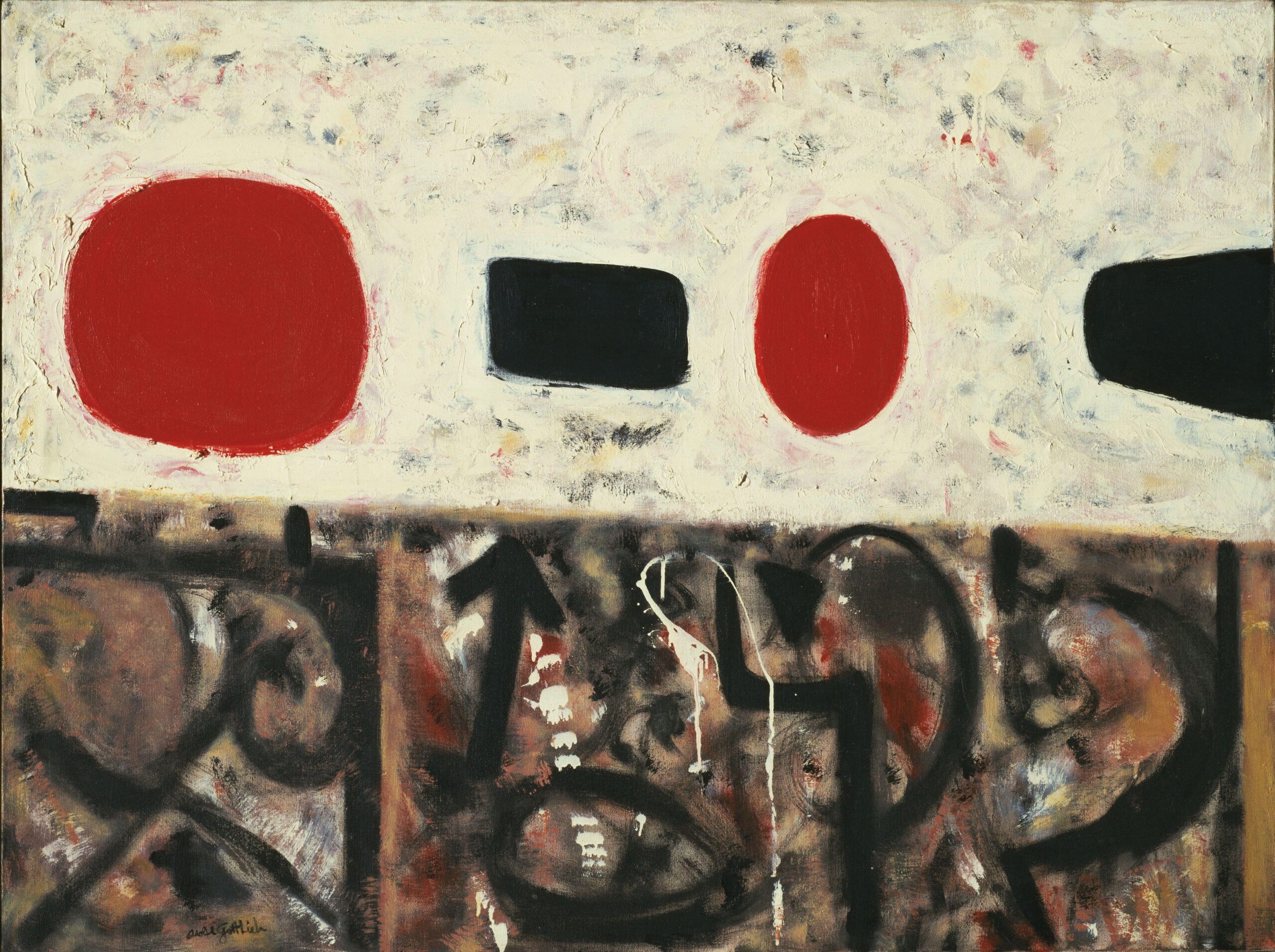

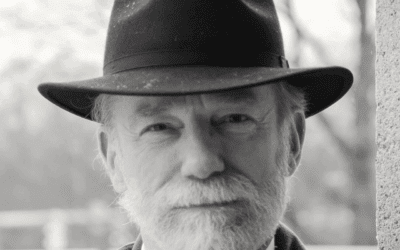
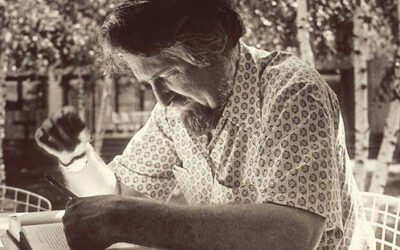









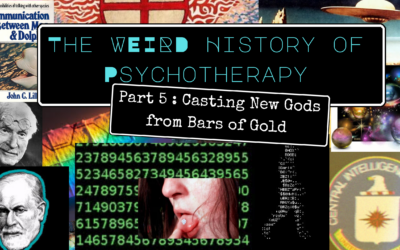
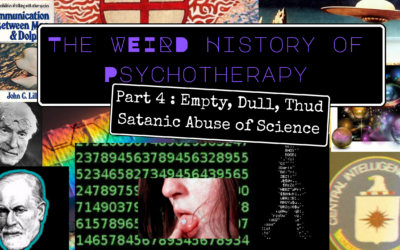
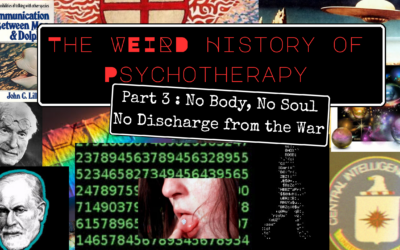
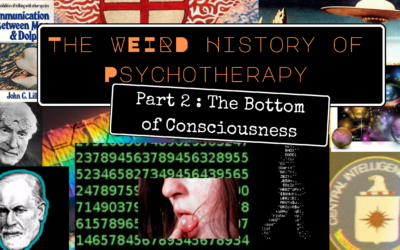



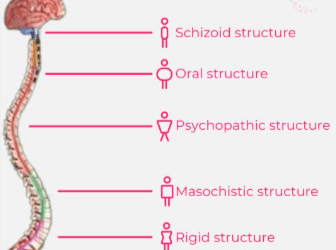





0 Comments